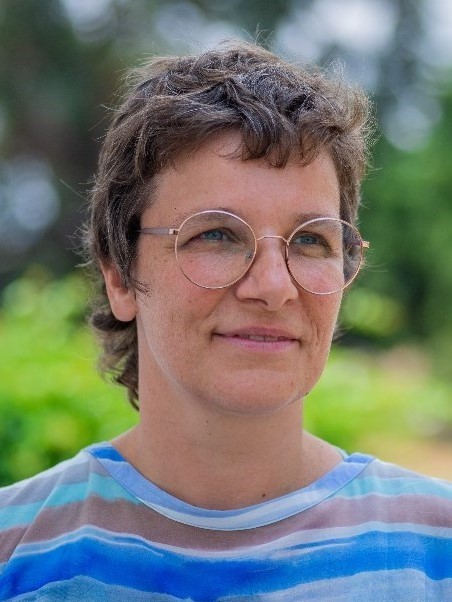Stephanie Lämmert is a historian of East and Central Africa and affiliated with the Center for the History of Emotions at the Max Planck Institute for Human Development in Berlin, Germany. She is currently a fellow at MIASA in Legon, Ghana. Stephanie is currently finishing a book manuscript dealing with agrarian change and women’s protest in Tanzania. Her research also explores the history of intimacy, motherhood and care work in twentieth-century central African Copperbelt society, and its broader implications for histories of feminism, labour and global capitalism. She has published in journals such as Gender & History and Past and Present. Stephanie is, together with Serawit Debele and Yusuf Serunkuma, PI of the Volkswagen funded project “German African Studies through the lens of Critical Race Theory” in which they interrogate the politics and emotions of (Africanist) knowledge production and questions around epistemic and geographic location within African Studies.
MIASA Project: Conflict over Land and Labour: A feminist reading of the protest against soil conservation and land grabbing in late colonial Tanzania through court records
Despite the 1999 land tenure reforms in Tanzania that recognize collective group land rights, land grabs related to investments in agriculture and tourism threaten the livelihoods of Tanzanian peasants. The history of land grabs dates back to colonialism. It is inextricably linked to a developmentalist soil conservation agenda. Using the example of the Usambara Scheme, a soil conservation project introduced in 1946 under British colonial rule, I aim to historicize Tanzanian responses to land grabbing and soil conservation. The Usambara Scheme has elicited a protest wave. Scholars have understood the protest as inspired by the nationalist movement. However, the literature has neglected the gender dimension of the protest. Following Lyn Ossome’s “pedagogies of feminist resistance” in women-led agrarian struggles, I seek to demonstrate the gendered nature of protest formation in Usambara. Doing so, I focus on the way land loss and forced cultivation labour are gendered processes that shed light on the nature of colonial violence and how this effects men in women in different ways. My rereading of the Usambara Scheme as a women-led protest offers new insights into how rural women imagined potential future(s). The vision of these future(s), imagined as they were by actors side-lined by the colonial and the post-independence state, differs from previous nationalist readings. The project is based on various sources such as oral interviews, rumours, court records, missionary and administrative records.




